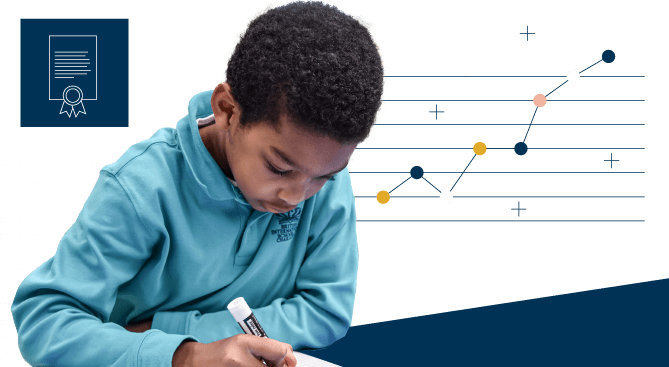At BIS Charlotte, we treat everyone as an individual. We understand that your child has their own unique talents, passions, and ambitions. And, when it comes to learning, we know that what works for one student is unlikely to be the same for their friends. This is why, as a school, we’re committed to personalized learning. But what does this mean in practice? And what, exactly, is personalized learning? We explain all in this article.
What is personalized learning?
Put simply, personalized learning is where a child’s education is designed around their specific needs, preferences, and interests.
In practice, this means:
- The pace of learning is adjusted to the individual student.
- Learning objectives, approaches, content, and tools are optimized for each learner.
- Learning is driven by student interests.
- Students are given a choice over what, how, when, and where they learn.
- Learning is supported by technology.
By doing these things, our teachers can effectively personalize learning to the requirements of each child.
Pace- and student-driven personalized learning
There are two fundamental ‘types’ of personalized learning, both of which we employ at BIS Charlotte.
- Pace-driven personalization enables a learner to move through the material at their own speed, typically through an online curriculum that adapts to individual needs and skills along the way. This addresses the problem that human beings do not learn at the same rate, even though schools typically organize students by age.
- Student-driven personalization gives a child ownership over what they want to learn, based on their goals and interests. That is, the curriculum itself – not just the pace at which a student moves through it – is personalized. Students work both individually and collaboratively, often on projects that align with the areas they want to explore.
How we deliver a personalized education at BIS Charlotte
Personalized learning is central to our educational approach. It’s not an add on or something that only happens in certain lessons – it underpins everything we do.
At BIS Charlotte, personalized learning starts with a personalized success plan (PSP).
Getting to know your child
To build your child’s PSP, we firstly need to understand their learning preferences, needs, and interests. We do this through collaborative conversations, observations, and assessments. For example, recognizing whether a student is a visual, auditory, or kinesthetic learner will help our teachers tailor their instructional practices to suit the individual’s needs.
Creating your child’s PSP
Every child’s PSP is collaboratively created by our teachers, staff, and parents, as well as the student themselves. The PSP is a personal roadmap, identifying individual strengths, targets, and key action points. Academic progress is continually monitored by class teachers and Phase Group Leaders, ensuring your child is on track to achieve their goals.
While academic progress is important, the PSP also places significant emphasis on personal growth. This includes identifying individual traits and communication preferences, as well as talents and interests beyond the classroom. Your child’s PSP will, ultimately, help them to hone important life skills, from time management and organization to problem solving.
The PSP system also enables us, as teachers, to explore different learning styles, and then apply the methods that work best for that student. Our curricula are fully customizable, which means they can be adapted so that the learning experience is meaningful for everyone.
The benefits of personalized learning for students
By identifying a student’s needs – and collaboratively creating a personalized success plan to meet them – we can deliver a truly tailored learning experience. This, of course, brings many benefits.
Feeling valued and connected
By acknowledging and accommodating individual differences, student engagement, motivation, and achievement increases. Students are more likely to feel valued and connected to their education when their unique characteristics and learning styles are considered.
Fostering a lifelong love of learning
A personalized education fosters a lifelong love of learning by allowing students to pursue their interests and passions. It equips them with the necessary skills, such as critical thinking, problem solving, and self-directed learning abilities, that are vital for success in the 21st century.
Responding to diverse needs
One of the key benefits of personalized learning is its ability to address the diverse needs of students. In a traditional classroom setting, students with different abilities and learning styles may struggle to keep up or feel left behind. However, with personalized learning, each student can receive the support and resources they need to thrive academically.
Creating a positive classroom culture
Another benefit of personalized learning is its potential to cultivate a positive and inclusive classroom culture. By valuing and respecting each student’s unique qualities, personalized learning creates an environment where students feel safe to express themselves and share their ideas. This promotes empathy, collaboration, and a sense of belonging.
A personalized education fit for the future
Ultimately, the benefits of personalized learning for students are many and varied.
A personalized education increases engagement and allows your child to learn at their own pace. It also enables them to pursue their interests. As a result, their classroom performance is much more likely to improve.
Adapting learning also equips each student with the skills and competencies they need for future success. This ensures they’re ready to meet the demands of higher education, careers, and life beyond the classroom.
To find out more about the benefits of personalized learning for students, please get in touch with us administration@bischarlotte.org







